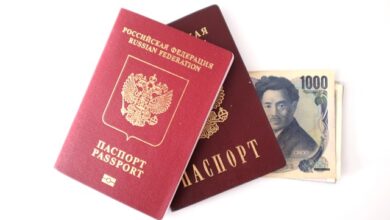Myths and Facts About Immigrating to France

France has long been a popular destination for immigrants seeking new opportunities, cultural enrichment, or a higher quality of life. However, misconceptions about the process of moving to and living in France abound. These myths can create unnecessary fears or unrealistic expectations for those considering immigration. To help you separate fact from fiction, here’s a detailed look at some common myths—and the truths behind them.
Myth 1: It’s Easy to Move to France as an EU Citizen
Fact: While it is easier for European Union (EU) citizens to relocate to France compared to non-EU nationals, there are still requirements and procedures to follow.
- Reality for EU Citizens: EU citizens enjoy freedom of movement within the Schengen Area, allowing them to enter France without a visa. However, they must register with the local authorities if staying longer than three months and provide proof of employment, sufficient financial resources, or enrollment in an educational institution.
- For Non-EU Citizens: Non-EU nationals face stricter immigration rules, including obtaining a long-stay visa and meeting specific criteria such as having a job offer, family ties, or sufficient funds.
Myth 2: You Need to Speak Fluent French to Live in France
Fact: While knowing French is highly beneficial, it’s not always mandatory, especially in larger cities like Paris, Lyon, or Bordeaux, where many people speak English.
- Reality: In urban areas, expats can navigate daily life using English, particularly in workplaces, schools, and tourist hubs. However, outside major cities, fluency in French becomes more important for tasks like grocery shopping, doctor visits, or administrative dealings.
- Pro Tip: Learning even basic French phrases goes a long way in fostering goodwill and integrating into society. Many expats take language courses upon arrival to improve their skills.
Myth 3: The Cost of Living in France Is Prohibitively High
Fact: While certain regions, especially Paris, have a high cost of living, other parts of France are quite affordable.
- Reality: Cities like Paris, Nice, and Lyon are known for being expensive, particularly when it comes to housing. However, smaller towns and rural areas often offer much lower costs for rent, groceries, and utilities.
- Example: Regions like Brittany, Normandy, or Occitanie provide a high quality of life at a fraction of the cost of metropolitan areas.
- Budgeting Tip: Create a realistic budget based on your chosen location and lifestyle preferences to avoid surprises.
Myth 4: Finding a Job in France Is Impossible for Expats
Fact: While the French labor market can be competitive, opportunities exist, especially in sectors facing skill shortages.
- Reality: Industries such as IT, engineering, healthcare, and hospitality frequently seek qualified professionals. Additionally, bilingual expats with expertise in international business or tourism have an advantage.
- Challenges: The hiring process may involve navigating bureaucracy, understanding labor laws, and competing with local candidates. Networking through professional platforms like LinkedIn or attending industry events can increase your chances.
- Solution: Consider learning French and tailoring your CV to match French standards, which emphasize education and experience over flashy designs.
Myth 5: Healthcare Is Free for Everyone in France
Fact: France boasts one of the best healthcare systems in the world, but it is not entirely free—even for residents.
- Reality: The French healthcare system operates on a universal coverage model funded by payroll taxes and contributions. Residents typically pay upfront for medical services and are reimbursed up to 70-80% by the state health insurance system (Sécurité Sociale).
- Supplementary Insurance: Most people purchase additional private insurance (mutuelle) to cover remaining costs.
- For Expats: Access to public healthcare requires legal residency and registration with the Caisse Primaire d’Assurance Maladie (CPAM). Tourists and short-term visitors rely on travel insurance or private plans.
Myth 6: Bureaucracy in France Is Impossibly Complicated
Fact: Navigating French bureaucracy can indeed be challenging, but it’s manageable with preparation and patience.
- Reality: Tasks like applying for visas, opening bank accounts, or registering for social security often involve extensive paperwork and multiple steps. However, these processes are standardized and well-documented.
- Tips for Success:
- Visit official government websites like Service-Public.fr for guidance.
- Keep copies of all documents and maintain organized records.
- Seek assistance from relocation agencies or bilingual advisors if needed.
Myth 7: French People Are Unfriendly Toward Immigrants
Fact: While stereotypes persist about the French being aloof, most locals are welcoming once you make an effort to integrate.
- Reality: Like any country, attitudes toward immigrants vary depending on individual perspectives and regional differences. Urban areas tend to be more cosmopolitan and accepting, while rural communities may take longer to warm up to newcomers.
- Integration Efforts: Showing respect for French customs, learning the language, and participating in local activities can help build positive relationships with neighbors and colleagues.
Myth 8: You Can’t Buy Property in France as a Foreigner
Fact: Foreigners, including non-EU citizens, can purchase property in France without restrictions.
- Reality: There are no special barriers for foreigners buying real estate in France. Whether you’re looking for a primary residence, vacation home, or investment property, the process is straightforward.
- Considerations: Financing options may differ for non-residents, so securing a mortgage might require a larger down payment or higher interest rates.
- Legal Advice: Working with a real estate agent familiar with international buyers can streamline the process and ensure compliance with regulations.
Myth 9: All French Schools Are Public and Free
Fact: While public education in France is free and of high quality, private schooling is also prevalent and comes with fees.
- Reality: Public schools are funded by the state and available to all children, regardless of nationality. Private schools, often affiliated with religious organizations, charge tuition and cater to specific educational philosophies.
- International Schools: For expat families, international schools offering curricula in English or other languages are another option—but they come with hefty price tags.
- Choice Depends on Needs: Consider factors like language proficiency, academic goals, and budget when choosing a school for your children.
Myth 10: Life in France Is Always Romantic and Picturesque
Fact: While France offers breathtaking landscapes, historic landmarks, and a rich cultural heritage, everyday life isn’t always idyllic.
- Reality: Like anywhere else, France has its share of challenges, including traffic congestion, pollution in cities, occasional strikes disrupting services, and bureaucratic hurdles.
- Balance Expectations: Appreciate the beauty and charm of France while preparing for practical realities. Embracing both aspects will lead to a more fulfilling experience.



